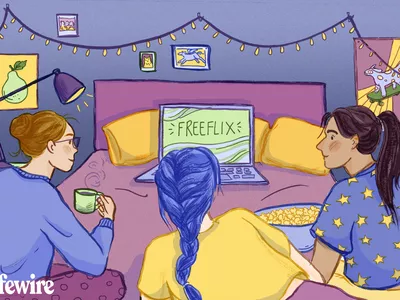
7 Ways to Lock Apps on Apple iPhone 14 and iPad Securely | Dr.fone

7 Ways to Lock Apps on Apple iPhone 14 and iPad Securely
Are you concerned about your privacy and would like to secure certain apps on your iOS device? Don’t worry! There are plenty of ways to app lock the Apple iPhone 14 and protect your privacy. You can follow the same drill to restrict the usage of certain apps for your kids as well by taking the assistance of the Apple iPhone 14 app lock feature. The app lock for iPhone and iPad options can be used pretty easily. There are plenty of native and third-party solutions out there that you can use. In this post, we will make you familiar with seven different techniques on how to lock apps on iPhones and iPads.
Part 1: How to Lock Apps on iPhone with Screen Time?
Utilizing Screen Time on your Apple iPhone 14 offers a versatile way to manage app access. It is done through time restrictions and a dedicated passcode. By implementing Screen Time settings, you can exercise control over app usage. It ensures added security and regulated access to your preferred applications. Now, let’s walk through the steps to learn how to lock apps on iPhone Screen Time:
Step 1. Begin by accessing the Settings on your iOS device and tapping on the “Screen Time” option. On the ensuing screen, tap “App Limits,” followed by “Add Limit.”
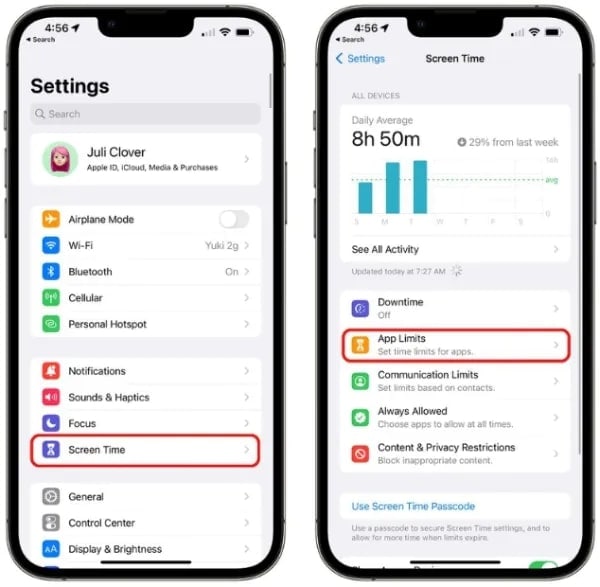
Step 2. Select the apps or categories of the apps, tap “Next,” and choose the “Time Limit” for the selected apps. After deciding the time limit, press “Add” from the top right corner to add an app limitation.
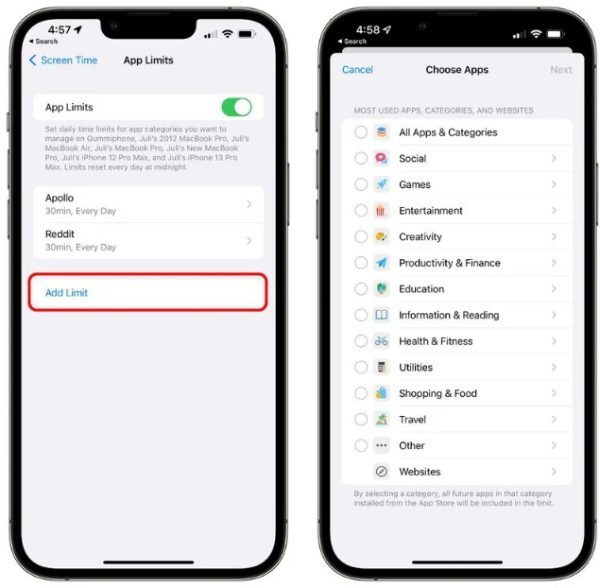
Part 2: How to Lock Apps on iPhone with Face ID & Passcode?
Leveraging the advanced security capabilities of Face ID or Passcode on your Apple iPhone 14 X or later models effectively fortifies app access. By using facial recognition or passcodes, you can put in place an extra layer of protection. It can be done for specific apps, safeguarding your sensitive data from unauthorized access. Now, let’s proceed with the detailed steps to lock apps using Face ID or Passcode on your iOS device:
Step 1. After opening the Settings app on your Apple iPhone 14, scroll down to access “Face ID & Passcode.” Here, you will be required to provide the passcode of your device.
Step 2. After providing the passcode, select “Other Apps” and check the apps that have Face ID enabled. Remember, you’re unable to manually include apps in the list. Only those apps that have sought access to the feature will appear here automatically.

Part 3: How to Lock Apps on iPhone Using Shortcuts?
If you are unable to lock the targeted app directly with Face ID, there is no need to worry. There exist workarounds that you can use, and one of them is using the Shortcuts app. It won’t directly lock apps with the Face ID. Instead, it provides a workaround by creating a shortcut that redirects to the lock screen.
When activated, it takes you to the lock screen, prompting Face ID, Touch ID, or Passcode to access the Apple iPhone 14 device again. Use the following steps to lock your apps using the Shortcuts app:
Step 1. On your Apple iPhone 14, launch the Shortcuts app and select the “Automation” tab from the bottom toolbar. There, tap “New Automation” and use the search bar to look for and select “App.”

Step 2. Now, tap “Choose” in front of the “App” and select the app you want to lock. Now, move down and select “Is Opened,” then move further down to choose “Run Immediately.” Here, leave “Notify when Run” deactivated.

Step 3. Proceed forward by tapping “Next” from the top right corner, and on the following screen, tap “New Blank Automation.” Then, press “Add Action” and enter “Lock Screen” into the Search field, then choose “Lock Screen” from the search results.

Step 4. Finally, tap “Done” to finalize the shortcut. Now, upon accessing the targeted app, the shortcut will activate in the background, causing your Apple iPhone 14 to be locked. You can then use the Face ID, Touch ID, or passcode to unlock it.

Part 4: How to Lock Apps on iPhone Using Restrictions?
By taking the assistance of Apple’s native Restrictions feature, you can app lock the Apple iPhone 14 without any trouble. In this way, you can set up a passcode that needs to be matched before accessing any app. This iPhone app lock is also a great way to restrict your kids from accessing certain apps or making purchases. To learn how to lock apps on iPhone or iPad using Restrictions, follow these steps:
Step 1. Unlock your device and go to its Settings > General > Restrictions.

Step 2. Turn the feature on and set up a passcode for app restrictions. To provide added security, you can set up a passcode that is not similar to your lock screen passcode.
Step 3. Now, you can set up an app lock for iPhone using Restrictions. Simply go to General > Restrictions and turn this feature on for any app of your choice.
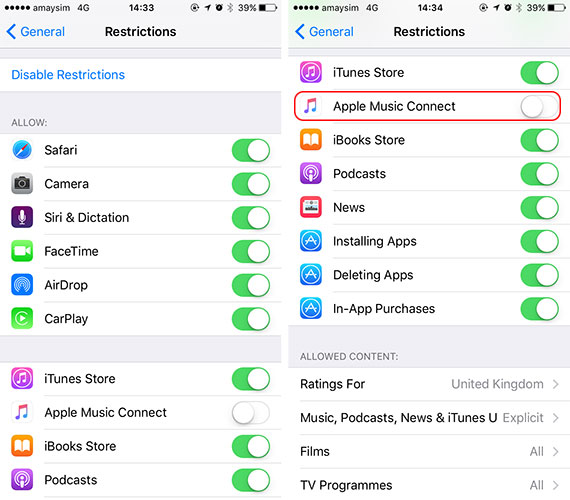
Step 4. If you want, then you can also switch this feature off for any app using the same method.
Bonus Tip: How to Unlock iPhone withoutScreen Locks (PIN/pattern/fingerprints/face)
It can be a trouble if you forget your Apple iPhone 14 passcode since there are many restrictions on using iPhone. Also, if you are still unable to verify your Apple ID by using the above ways you may consider removing your Apple ID on your iOS devices. Here is an easy way to help you bypass Apple ID without a password and 100% working, which is to use Dr.Fone - Screen Unlock (iOS). It’s a professional iOS unlocker tool that can help you remove various locks on iPhones and iPads. With only a few steps, you can easily remove your Apple ID.
Dr.Fone - Screen Unlock (iOS)
Remove iPhone iPhone-locked screen without Hassle.
- Unlock an iPhone whenever the passcode is forgotten.
- Save your Apple iPhone 14 quickly from the disabled state.
- Free your sim out of any carrier worldwide.
- Works for all models of iPhone, iPad, and iPod touch.
- Fully compatible with the latest iOS.

4,008,670 people have downloaded it
Part 5: How to Lock Apps on iPhone Using Guided Access?
Besides the Restrictions feature, you can also take the assistance of Guided Access to lock a certain app on your device. It was originally introduced in iOS 6 and can be used to restrict your device temporarily with the usage of a single app. It is mostly used by parents who would like to restrict their kids from using a single app while lending their devices. Teachers and people with special needs also use Guided Access pretty frequently. To learn how to lock apps on iPhone using Guided Access, follow these steps:
Step 1. To start with, go to your device’s Settings > General > Accessibility and tap on the “Guided Access” option.

Step 2. Turn on the “Guided Access” feature and tap on the “Passcode Settings”.

Step 3. After selecting the “Set Guided Access Passcode” option, you can set up a passcode to use it as an app lock for iPhone.
Step 4. Now, simply launch the app that you want to restrict and tap the Home button three times. This will start the Guided Access mode.

Step 5. Your phone would now be restricted to this app. You can further restrict the usage of certain app features as well.
Step 6. To exit the Guided Access mode, tap the Home screen three times and provide the respective passcode.

Part 6: How to Lock Apps on iPhone with Touch ID?
On the Apple iPhone 14 8 Series and iPhone SE, Apple offers Touch ID for security. In the process, it is similar to the Face ID available on the later iPhones. If you have an iOS device with Touch ID, here are the steps you can follow for the app lock iPhone process:
Instructions: To start, open the Settings application. Now scroll down to locate and select the “Touch ID & Passcode” option. On the following screen, you can deactivate or activate Touch ID for apps.

Part 7: How to Lock Apps on iPhone Using Third-Party Apps?
1. Lock Apps onApple iPhone 14 & iPad via Famisafe
If the reason you want to lock the apps on your Apple iPhone 14 has to do with managing your kid’s phone usage, we have an excellent alternative for you. FamiSafe is a reliable parental control app that offers features to monitor and manage a child’s device usage. It focuses on parental controls, including features like screen time management, location tracking, web filtering, and activity monitoring.
It offers robust controls to restrict overall device usage, set screen time limits, and monitor app usage. This helps parents guide and regulate their children’s activities on iOS devices. You can use the following steps to lock apps using FamiSafe:
Step 1: Install FamiSafe and FamiSafe Jr on Respective Devices
Get FamiSafe from the App Store and log in using your Wondershare ID or your Apple, Google, or Facebook account. Select the parent mode and link your child’s phone by installing FamiSafe Jr on their devices using either the QR code or the pairing code. Once the pairing is done, input details about your children and allow FamiSafe Jr to oversee their devices.

Step 2: Provide the Necessary Permissions to FamiSafe
Now, activate Accessibility for FamiSafe by accessing “Settings,” tapping “FamiSafe,” and enabling “Location.” Then, grant access to the Apple iPhone 14 device’s photos, microphone, and motion & fitness activity. Now, use a computer and connect your child’s device with a USB cable. Activate content blockers in Safari to prevent kids from accessing inappropriate content.

Step 3: Connect the Kid’s Device to the Computer
To do that, access “Safari” in “Settings” and move to”Content Blockers” to enable FamiSafe. To get started, connect your kids’ iOS devices to your PC. Once connected, navigate to the main interface and select “Features” located at the bottom. This will display available features, and you can proceed by tapping on “App Blocker.”

Step 4: Block Any App Using the App Blocker Feature
Establish the connection between your kids’ iOS devices and your PC by pairing them with your phone. From there, effortlessly choose and block any unwanted apps on your kids’ phones. Additionally, you have the option to block apps based on their App Store ratings for added control and security.

2. Lock apps onApple iPhone 14 & iPad using App Locker
Besides the native iPhone app lock solutions, you can also take the assistance of a third-party tool. However, most of these apps only support jailbroken devices. Therefore, if you wish to use a dedicated app lock for your Apple iPhone 14, then you need to jailbreak your device. Needless to say, getting your device jailbroken has its perks and demerits. If you don’t want to jailbreak your device, then you can simply take the assistance of the above-mentioned solutions.
However, if you have a jailbroken device and would like to app lock the iPhone, then you can also use AppLocker. It is available at Cydia’s repository and can be purchased for just $0.99. It can be installed on your jailbroken device to get an added level of security. Not just apps, it can also be used to lock certain settings, folders, accessibilities, and more. To learn how to lock apps on iPhone using AppLocker, follow these steps:
Step 1. Firstly, get AppLocker on your device from http://www.cydiasources.net/applocker . As of now, it works on iOS 6 to 10 versions.
Step 2. After installing the tweak, you can go to Settings > Applocker to access it.

Step 3. To access the feature, make sure that you have “Enabled” it (by turning it on).
Step 4. This will let you set up a passcode to lock the apps and settings of your choice.
Step 5. To app lock, the iPhone, visit the “Application Locking” feature on your device.
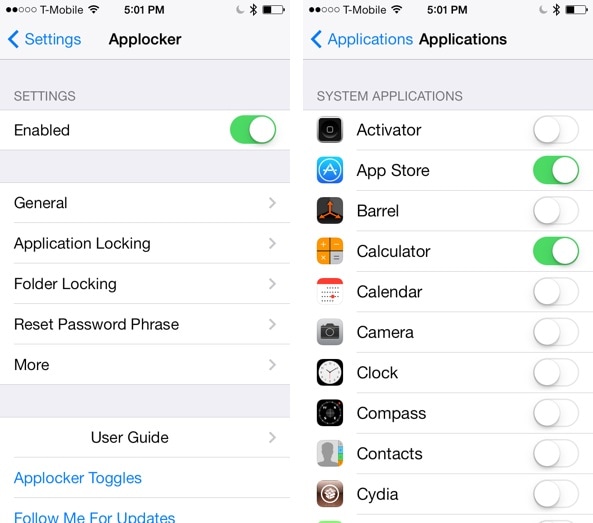
Step 6. From here, you can turn on (or off) the locking feature for apps of your choice.
This will let your app lock the Apple iPhone 14 without any trouble. You can also go to the “Reset Password Phrase” to change the passcode.
3. Lock Apps onApple iPhone 14 & iPad using BioProtect
Just like Applocker, BioProtect is another third-party tool that works only on jailbroken devices. It can also be downloaded from Cydia’s repository. Apart from apps, you can also use BioProtect to lock settings, SIM features, folders, and more. It is linked to the Touch ID of the Apple iPhone 14 device and scans the fingerprint of a user to grant (or deny) access to any app. The app only works on iPhone 5s and later devices, having a Touch ID. However, you can also set a passcode as well if your Touch ID is not working. To use the BioProtect app lock for iPhone, follow these steps:
Step 1. Firstly, get the BioProtect app to lock iPhone on your device from the right http://cydia.saurik.com/package/net.limneos.bioprotect/ .
Step 2. To access the tweak’s panel, you need to provide your fingerprint access.
Step 3. Place your finger on your Touch ID and match its print.

Step 4. This will let you access the BioProtect app settings.
Step 5. Firstly, enable the app by turning the respective feature on.
Step 6. Under the “Protected Applications” section, you can see a list of all the major apps.

Step 7. Simply turn on (or off) the feature of the app that you wish to lock.
Step 8. You can also go to the “Touch ID” feature to further calibrate the app.
Step 9. After setting the lock, you would be asked to authenticate using your fingerprint to access the protected app.

Wrap it up
By following these solutions, you would be able to learn how to lock apps on the Apple iPhone 14 without much trouble. We have provided both, third-party as well as native solutions to app lock the Apple iPhone 14 in a secure manner. You can go with your preferred option and provide an added layer of security on your device to keep it safe.
How to Unlock Apple iPhone 14 without Passcode or Face ID
You can’t access your Apple iPhone 14 because the Face ID isn’t working, and you forgot your passcode? So you are considering how to unlock iPhone without face ID or passcode. If so, this article will walk you through how to do that.
Firstly, one ought to realize that it is impossible to hack an iPhone passcode. Therefore, the primary way that attempts to unlock your device without a PIN or Face ID is to erase it. After reading this guide, you will figure out how to unlock iPhone without passcode or face ID. Keep reading to find out more and learn about the best tools in the business.
Part 1: Best Ways to Unlock iPhone without a Passcode or Face ID
1. Unlock it via Find My
- Go to the iCloud official site, and sign in to your iCloud account. The site will give you two or three choices when you log in. Click on “Find iPhone” to proceed.
- You will be taken to another interface. Click “All devices” and select the Apple iPhone 14 on which you need to erase the passcode.
- Click on “Erase iPhone”, and afterwards affirm the decision. That’s the simplest solution for how to unlock iPhone without passcode or face ID.

2. Via iTunes
Step 1. Go to Recovery Mode
Entering the recovery mode requires various steps, given your Apple iPhone 14 model or settings. Assuming you’re uncertain which one you have, check the rear of your phone or the client manual you got in the first box.
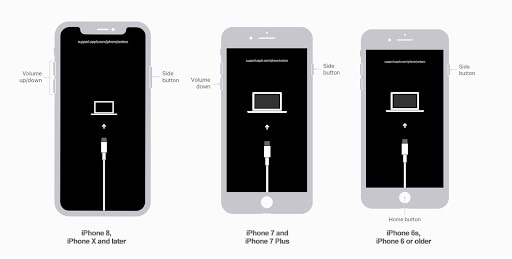
iPhone 8 and Above:
- Hold the Side button used to lock your screen and both Volume buttons. The power-off slider will show up on the screen.
- Drag the slider to one side to switch off your Apple iPhone 14.
- Use a lightning connector to plug your Apple iPhone 14 into a Macintosh or PC while holding the Side button.
- Keep holding the button until the recovery screen shows up.
iPhone 7/7 Plus:
- Hold the Side button used to lock your screen until the power-off slider shows up.
- Switch off your Apple iPhone 14.
- Connect your Apple iPhone 14 to a Macintosh or PC through a connector while holding the Volume (-) button.
- Continue to press the button until you get to recovery mode.
iPhone 6 or Below:
- Hold the Side or Top button and trust that the power-off slider will appear.
- Switch off your Apple iPhone 14.
- Connect your Apple iPhone 14 to a system through a connector while holding the Home button.
- Keep the Home button held until you see the recovery screen.
Step 2. Select your Device on your System
After entering recovery mode, you’ll have to continue on your Macintosh or PC. Then, contingent upon your OS, follow the aide underneath to begin unlocking your Apple iPhone 14.
macOS Catalina
- Go to the Finder window.
- Your Apple iPhone 14 will appear on the left half of the Finder window under Locations. You can tap on it to choose it.

macOS Mojave or a Windows with iTunes
If your gadget isn’t running macOS Catalina or later, you’ll need to involve iTunes to connect your Apple iPhone 14. In the first place, download iTunes on your PC. Then, take the appropriate steps depending on which iTunes version you’re running:
- On iTunes 12 and newer, click on the Apple iPhone 14 symbol in the upper-left corner of the iTunes window.
- On iTunes 11, click on the Apple iPhone 14 tab on the right half of the iTunes window.
- On iTunes 10, the Apple iPhone 14 will be in the sidebar on the left.
Step 3. Pick the Choice to Restore
When you’ve effectively connected and chosen your Apple iPhone 14 on a Mac or a PC, tap on the Restore button. And that’s how to unlock iPhone without passcode or face ID.
3. DNS Server
The following steps explain how to unlock iPhone without face ID or passcode using a DNS server:
Step 1. Pick your LANGUAGE and COUNTRY from the lock screen menu after switching on a locked device.
Step 2. Click “Continue” to enter the WiFi settings page. Whenever requested to connect to WiFi, search for the “I” next to the WiFi tab.
Step 3. Disconnect your current network, go to “Network/connection Settings”, and click Forget.
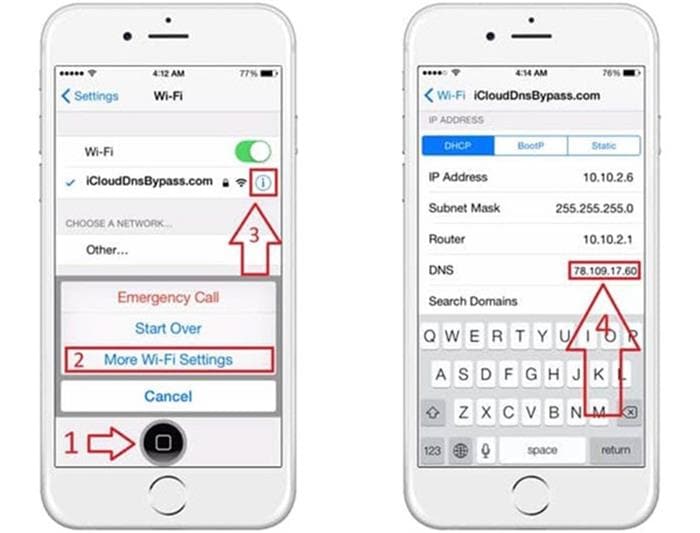
Step 4. Click the “I” and enter a DNS server IP address to bypass the lock. IP addresses of different regions are given below:
- USA: 104.154.51.7
- South America: 35.199.88.219
- Europe: 104.155.28.90
- Asia: 104.155.220.58
- Australia and Oceania: 35.189.47.23
- Others: 78.100.17.60
Step 5. Then, click the “Back” choice at the left half of your screen, turn the WiFi on and select your network. Enter your WiFi passcode.
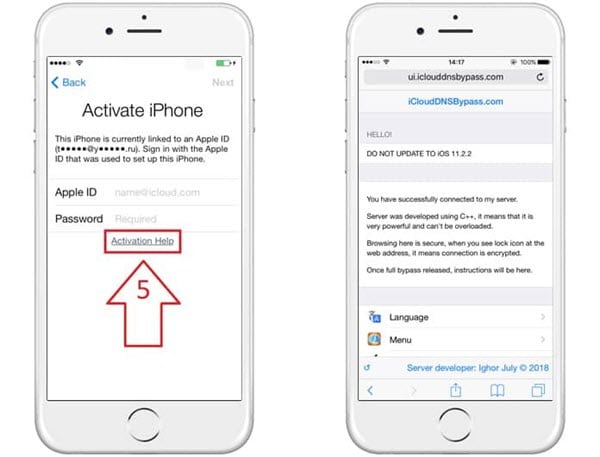
Step 6. Click Next Page > Back to enter the lock bypass screen. These are all the required steps for how to unlock iPhone without passcode or face ID 2022.
4. Dr.Fone-Screen Unlock
This section will introduce you to our most important solution. Yes, you heard it right. If you need a hassle-free method to unlock your iDevice without a passcode or face ID, use Wondershare Dr.Fone Screen Unlock.
Dr.Fone will not only remove the screen lock but also make sure to keep your identity safe. In addition, it is the easiest method and requires no prior knowledge. So if you are someone new to this technology, we suggest you follow the steps below:
Step 1. Launch the Software on your PC
After successfully installing Dr.Fone on your PC, open it and select the “Screen Unlock” tool from the main interface.

Next, connect your locked phone to the system through a wired connection. Then go for the iOS screen unlock feature.
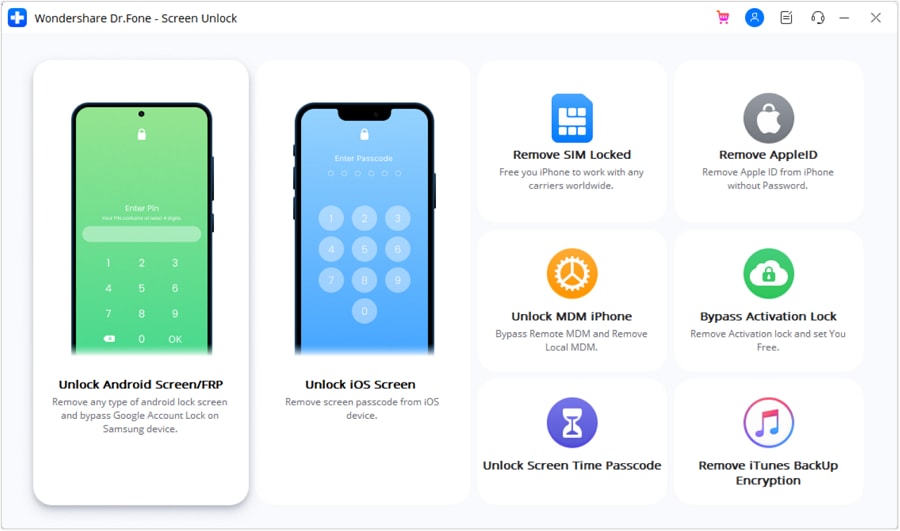
Step 2. Recovery or DFU Mode Boot
It is necessary to first boot your locked device in recovery or DFU mode. Follow the guidelines on your screen to do so. The Recovery mode is the suggested way for iOS screen locks. If you can’t actuate this mode, go for the DFU mode boot.
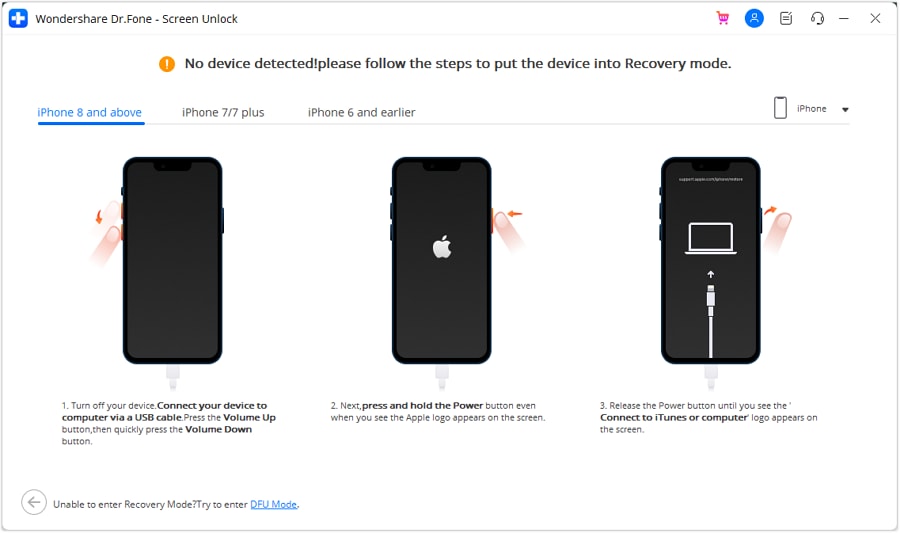
Step 3. Select your Apple iPhone 14 Model
After the phone is in recovery/DFU mode, the program will show the locked device’s information. Here you can see the model and iOS variant of the Apple iPhone 14 device. If it isn’t correct, you could choose the right one from the dropdown menu next to it. After that, click the Download button to get the required firmware for your locked phone.
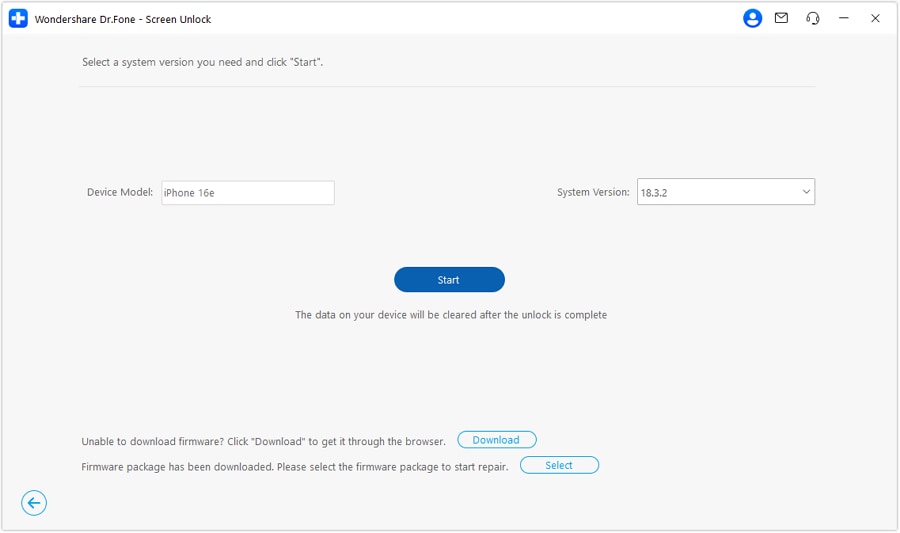
Step 4. Remove the Screen Lock
After downloading the firmware effectively, click the “Unlock Now” button to let Dr.Fone unlock your Apple iPhone 14.
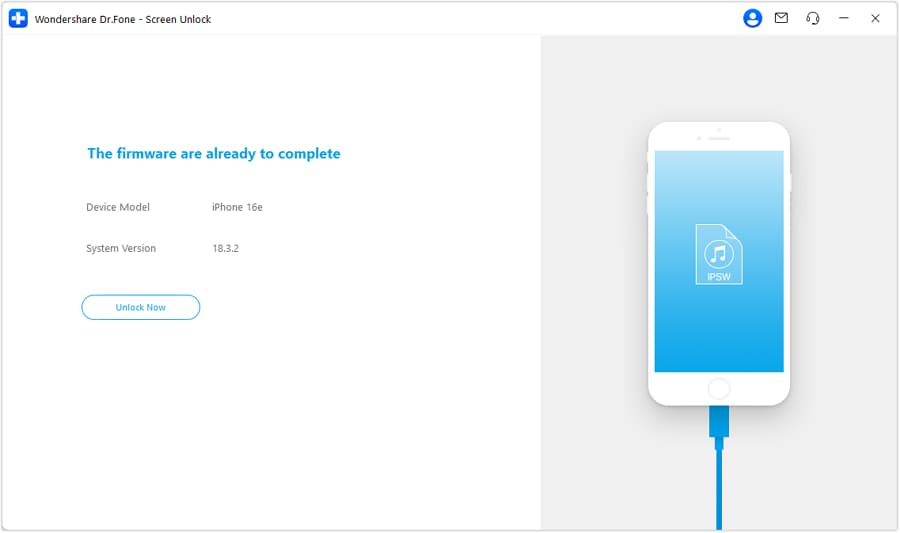
Simply in no time, Dr.Fone will successfully unlock your device.
Note: This unlocking process will erase everything off your Apple iPhone 14 and bring it to the factory default state. Indeed, no other method that doesn’t allow data erasure at the moment.
Part 2: How to Turn Off Passcode or Face ID on My Device?
Face ID can be a helpful method for unlocking your Apple iPhone 14 - by simply looking at your phone. However, a few clients might worry that it’s not as secure as utilizing a PIN to open your phone. If that is the best case for you, you can follow this manual to disable Face ID and depend on a passcode.
Here’s the step-by-step guide to the most effective method to switch off Face ID on the iPhone:
1. Open the Settings application
First, tap on your Settings app to open it. That is the one on the home screen with a symbol like the mechanical gear.
2. Tap on Face ID and Passcode
On the Settings menu, tap on the Face ID and Passcode menu.
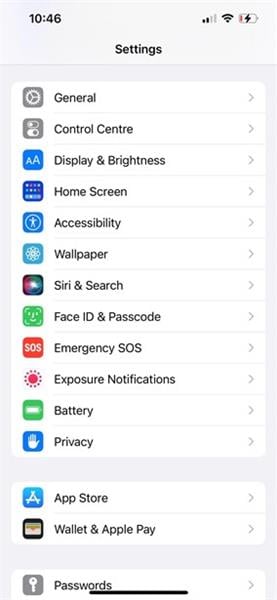
3. Enter your passcode
At this stage, you’ll be approached to enter your passcode, so do this to get to the Face ID and Passcode menu.
4. Switch off Face ID
You’ll have the option to turn off the switch for Face ID across different activities, including the phone unlock.
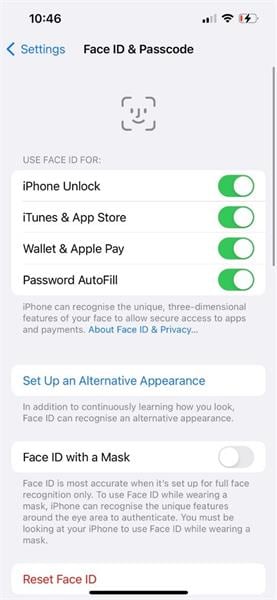
Part 3: Can I bypass my iPhone Face ID with a picture?
As indicated by Apple, the short and obvious answer is no.
FaceID isn’t simply a camera snapping a picture. It utilizes an exceptional chip to filter the face with many spots. It makes a 3D contour of the look that works in low, glorious light around evening time, and your eyes must be opened. The opportunity to randomly unlock an iPhone with FaceID is 1/1 million, compared to 1/50000 with Touch ID.
It doesn’t work by snapping a picture of your face, but by taking a contour of your face if you utilize a camera that can see infrared. However, a photograph is a level and cannot give a dab matrix required for Face ID to work. You may be holding a clear piece of paper before the phone.
The Bottom Line
That’s all about our take on how to unlock iPhone without passcode or face ID 2022. We have worked hard to make sure you get the right solutions in hand. However, we strongly suggest Dr.Fone if you still face issues with our solutions. Even if the above methods fail, Dr.Fone will ensure you unlock your phone.
Guide on How To Change Your Apple ID Email Address On Apple iPhone 14
Your Apple ID email is the key to your digital world with Apple devices. It’s the address Apple recognizes you by, allowing you to access your apps, music, and more. But sometimes, life brings changes, and your Apple ID email may need an update.
This guide will take you through the simple process of changing your Apple ID email address, ensuring it’s easy to understand every step. Explore why you might want to make this change, shedding light on common scenarios where this adjustment can enhance your Apple experience. So dive in and explore!
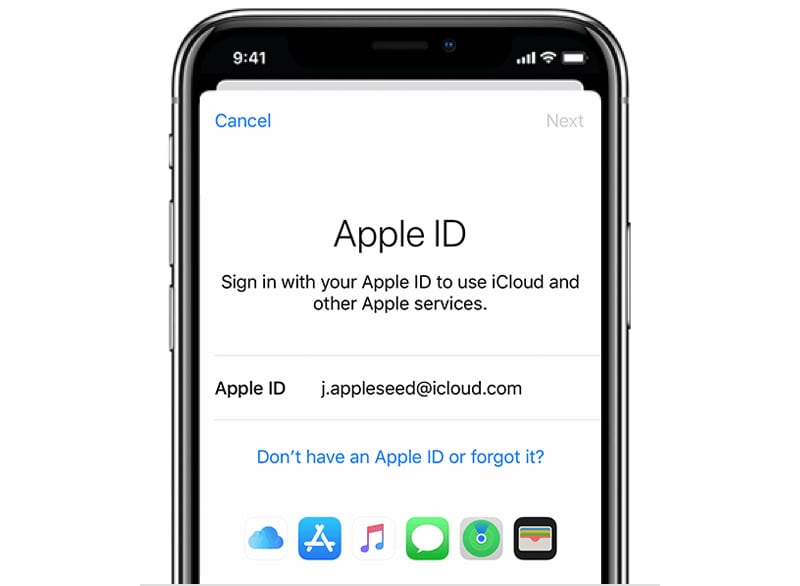
Part I: Why Change Your Apple ID Email?
Your Apple ID email helps you access your apps, music, and more. But sometimes, you might need to change it for simple reasons. Let’s look at why you might want to change your Apple ID email in easy-to-understand terms.
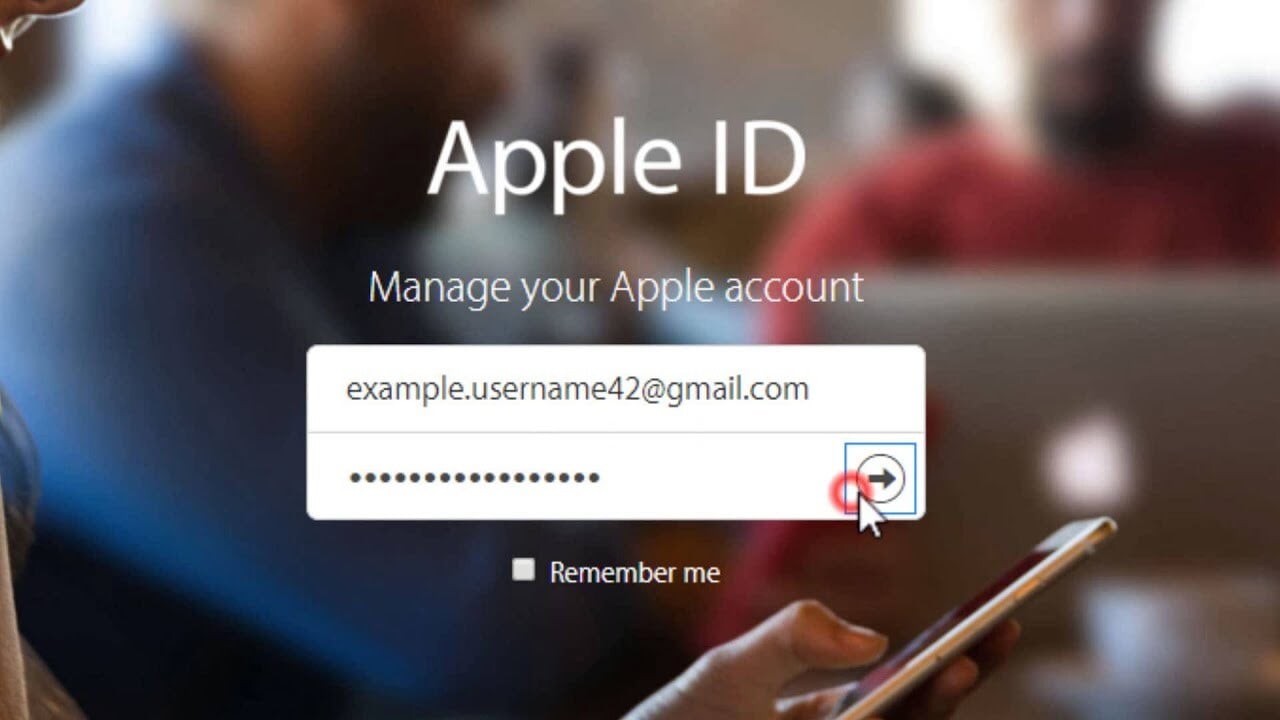
- Your email address is part of your identity. Changing it to something that better suits you can make your Apple experience more personal.
- If you think someone else knows your old email password, changing it can keep your Apple account safer. A fresh email means a new layer of security.
- Maybe you used an old email you don’t want to use anymore. Changing it lets you keep your personal life separate from your Apple stuff.
- **Email Problems.**If your old email is full of spam or not working well, switching to a new one is a good idea. You’ll get a cleaner and more reliable inbox.
- **Sharing Devices.**If you share Apple devices with someone and want to keep your stuff separate, changing your Apple ID email can help you do that easily.
- Using a more professional email address for your Apple ID can make a better impression when using Apple services for work or business.
These are the simple reasons why you might want to change your Apple ID email. It’s all about making your Apple experience better, safer, and more suited to your needs.
Part II: Step-by-Step Guide: How to Change Apple ID Email
Before you jump into changing your Apple ID email address, there’s an essential step to take. Just like you’d secure your valuables before embarking on a journey, backing up your device before going through the email change process is vital. This step ensures that none of your precious data is lost during the transition.
A. How To Change Your Apple Email Address on Various Devices
Now, let’s explore three different methods of how to change your Apple ID email address, tailored to various user preferences.
Method 1: For Mac Users
If you’re a Mac enthusiast, changing your Apple ID email is straightforward:
- Step 1: Click the Apple logo at the top left corner of your screen.
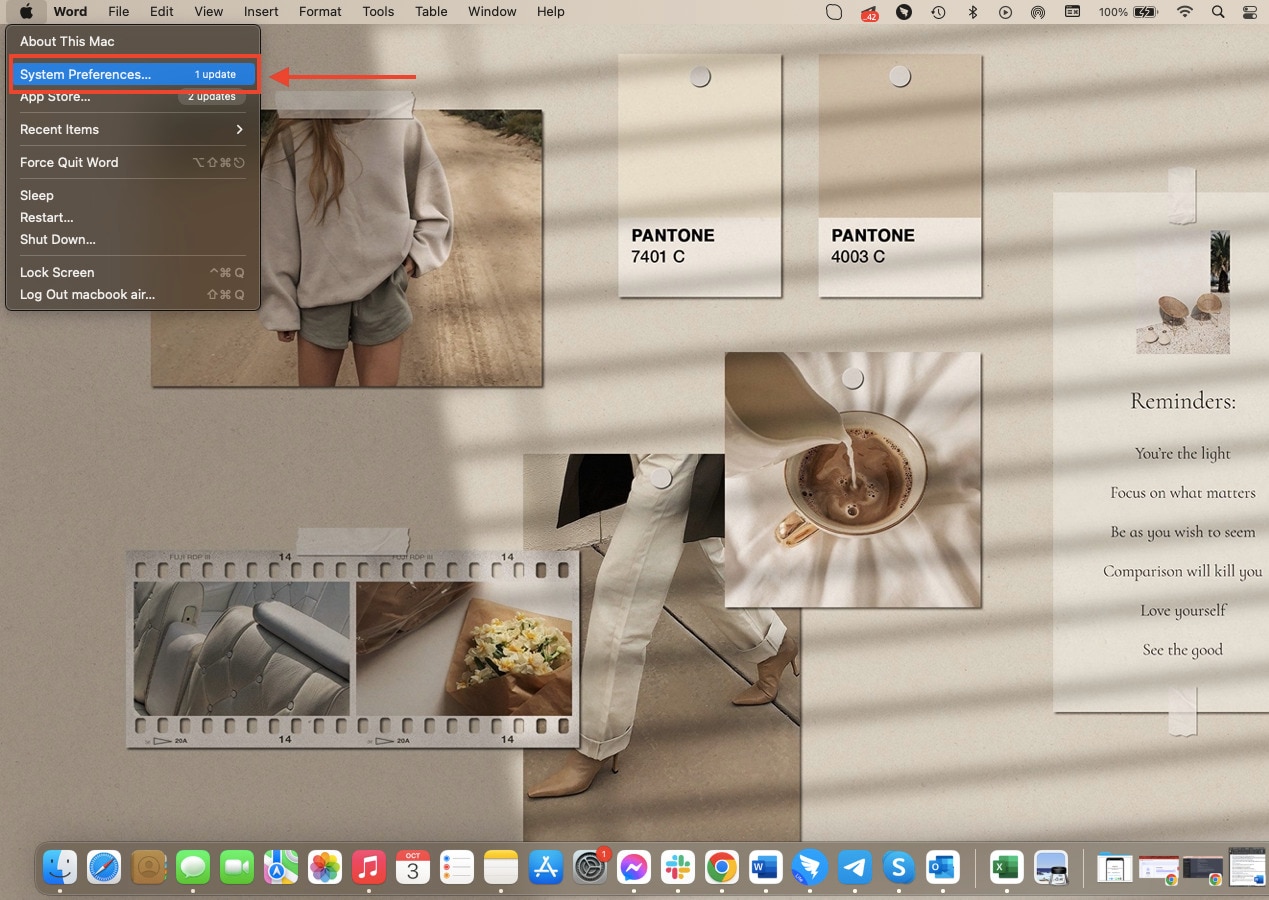
- Step 2: Click System Preferences, and then select Apple ID.
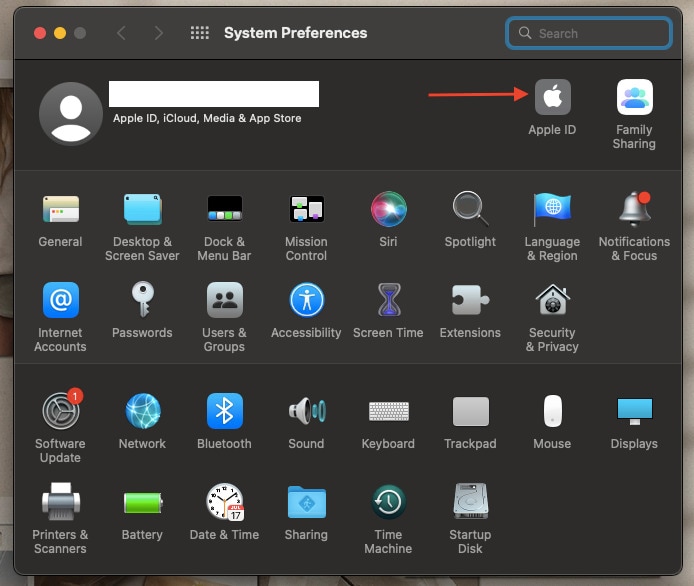
- Step 3: Navigate to the Name, Phone, Email section, then click Edit next to your email address.
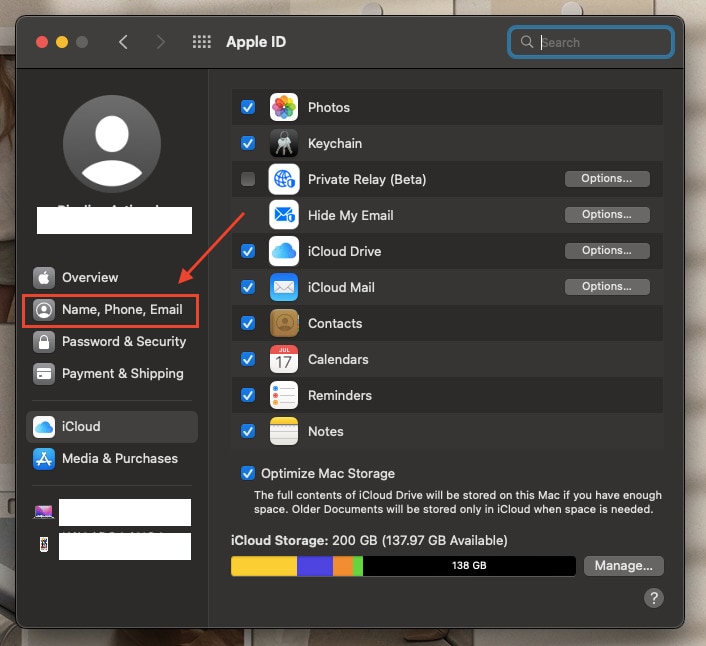
- Step 4: Input your new email address, and Apple will send a verification code to it.
- Step 5: Check your new email for the verification code, enter it, and voilà! Your Apple ID email is updated on your Mac.
Method 2: For Mobile Device Users
For those who prefer the convenience of mobile devices:
- Step 1: Open the Settings app on your Apple iPhone 14 or iPad, then tap your Apple ID at the top of the screen.
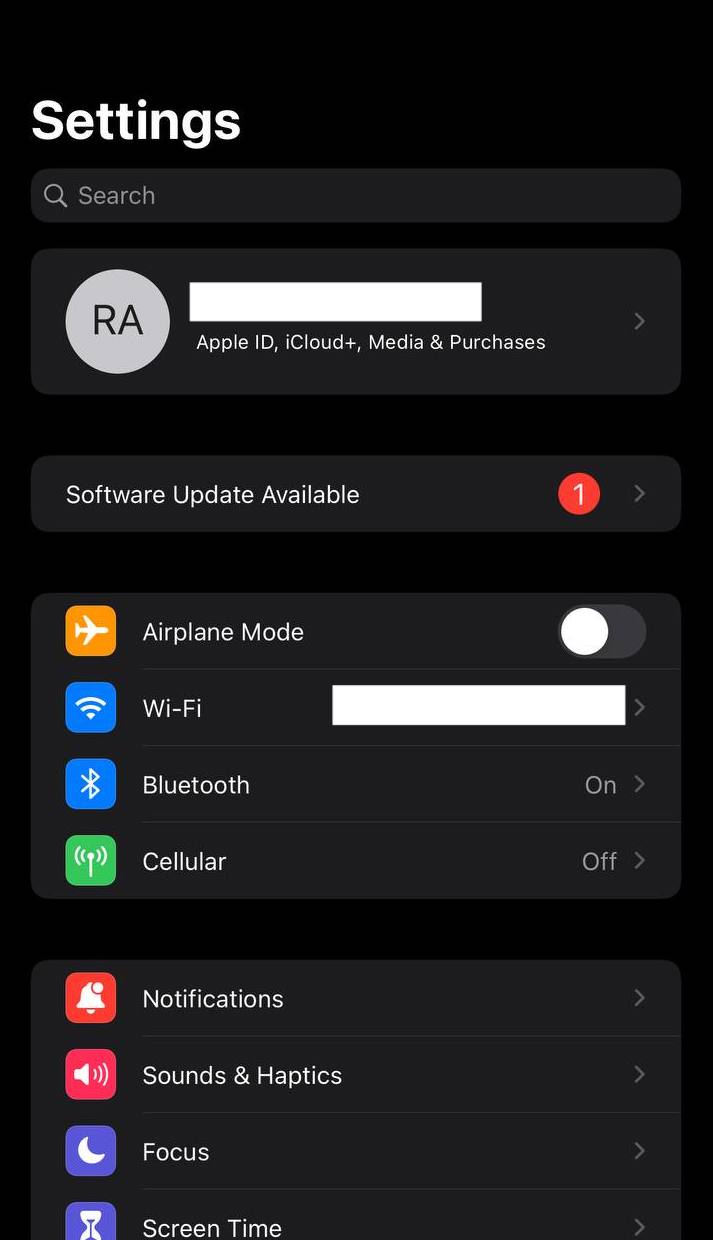
- Step 2: Tap Name, Phone Numbers, Email.
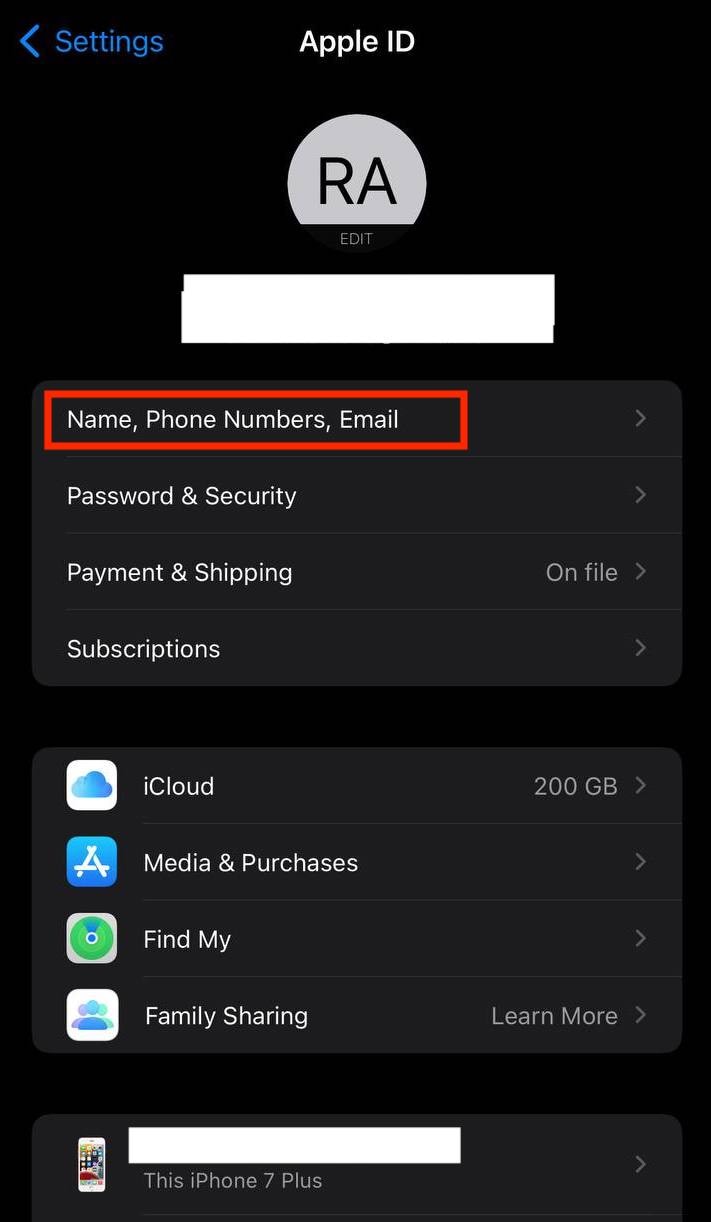
- Step 3: Tap Edit next to your email address, enter your new one, then tap Next.
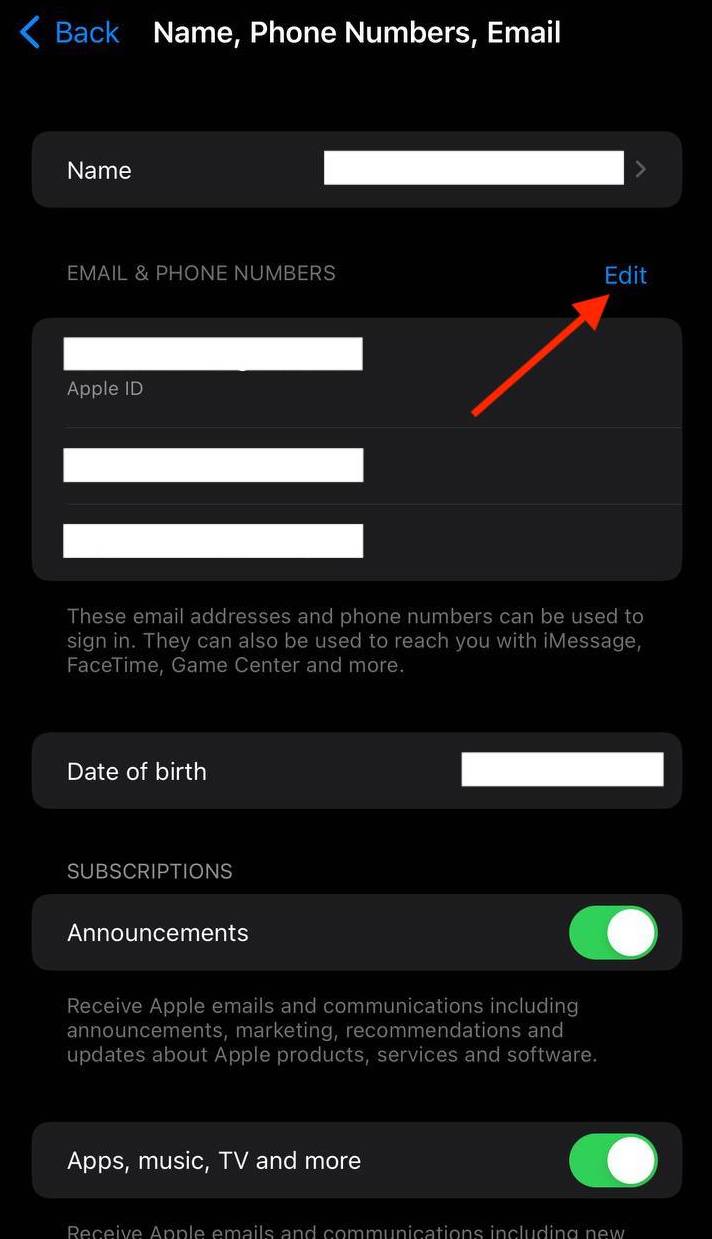
- Step 4: Apple will send a verification code to the new email. Enter it, and your Apple ID email on your mobile device is updated.
Method 3: For Browser Users
If you prefer the simplicity of a web browser:
- Step 1: Open the web browser your prefer and go to the Apple ID account management page.
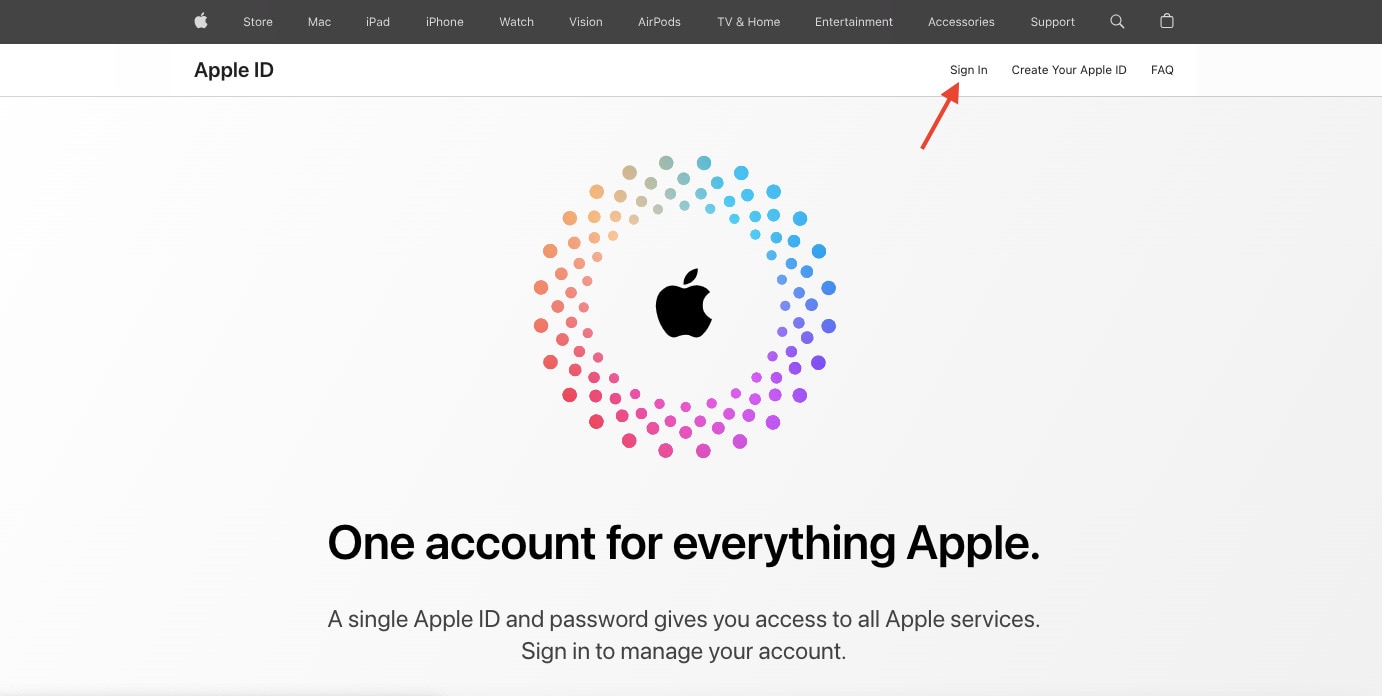
- Step 2: Click Sign In and tap your Email or Phone Number and Password.
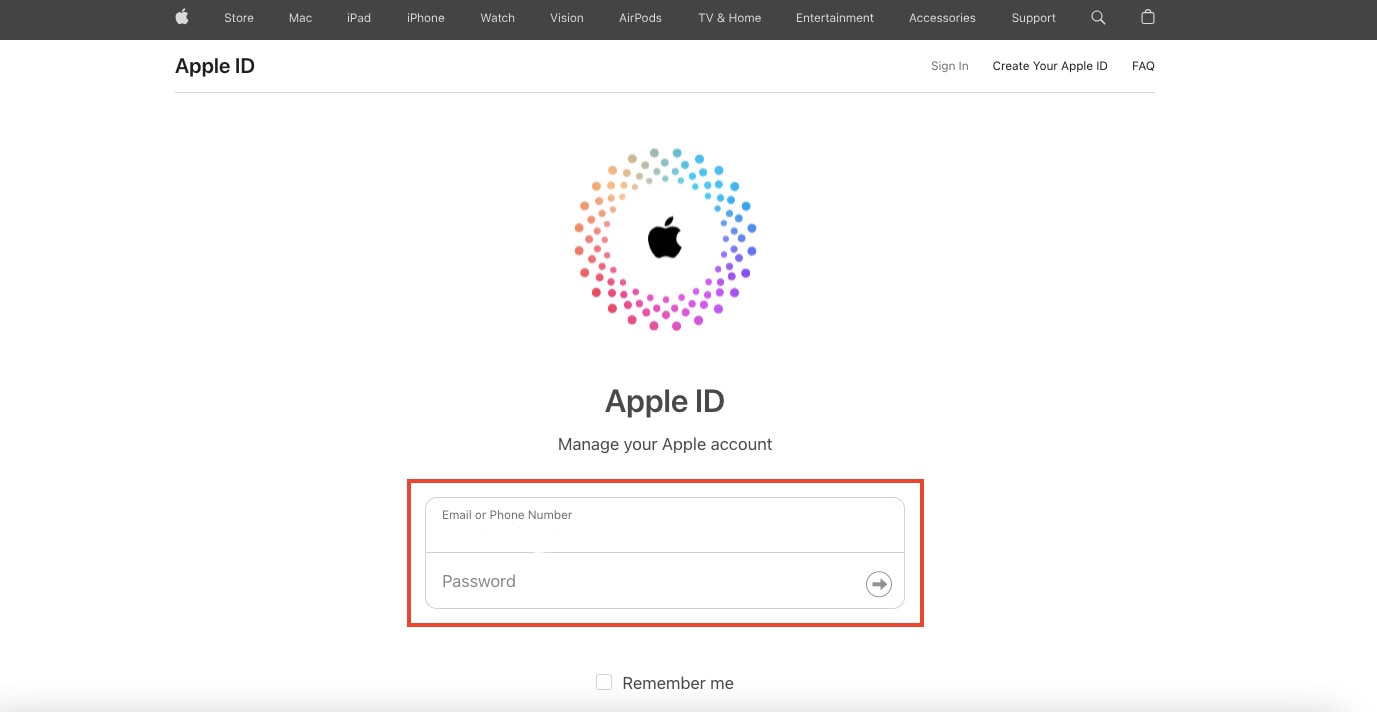
- Step 3: Click Edit next to your email address in the Account section.
- Step 4: Input your new email address and click Continue.
- Step 5: A verification code will be sent to your new email. Enter it to confirm your email change.
B. Updating Your Apple ID
Now that you’ve successfully changed your Apple ID email, it’s crucial to ensure that all your Apple devices are on the same page:
- Step 1: Tap the Settings application on your Apple iPhone 14 or iPad.
- Step 2: Go to Update Apple ID Settings below your Apple ID settings.
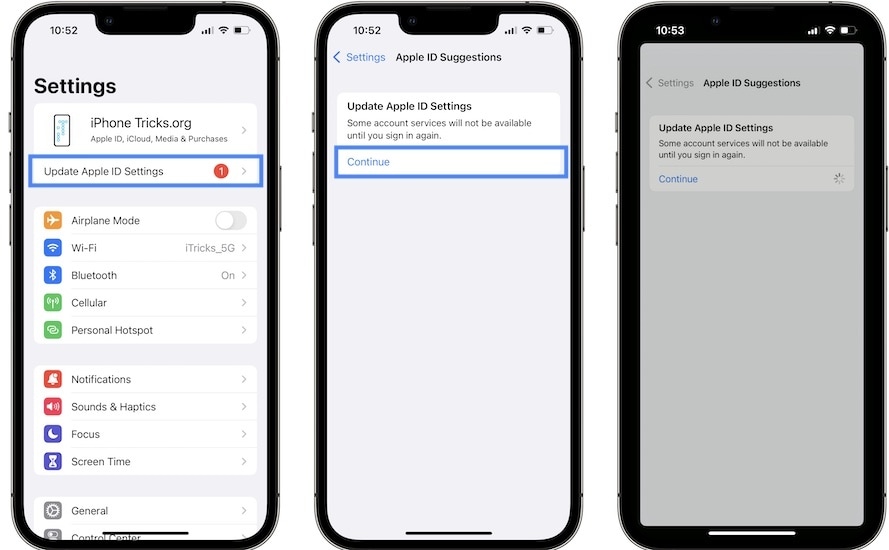
- Step 3: Tap Continue, then wait for a few moments. Your Apple ID will then get updated.
By following these steps, you’ll ensure that all your Apple devices are synced with your updated email address, providing a seamless and consistent Apple experience across all your gadgets. Now, with your new Apple ID email, you’re ready to explore the Apple ecosystem with renewed convenience and security.
Part III: Unlock iOS Screen With Wondershare Dr.Fone - Screen Unlock (iOS)
What if you find yourself in a situation where you want to change your Apple ID email address on your iOS device, but you’re locked out? Don’t worry; Dr.Fone - Screen Unlock (iOS) can rescue you. This handy tool is designed to help you unlock your iOS device, allowing you to change your Apple ID email address smoothly.

Key Features of Dr.Fone - Screen Unlock (iOS)
Check out the key features that Dr.Fone has to offer:
- **User-Friendly Interface.**Fone - Screen Unlock (iOS) is designed to be easy to use, making it accessible for users of all levels of technical expertise.
- It fits a wide range of iOS devices, including iPhones and iPads, ensuring that you can unlock your device no matter which one you have.
- **Multiple Unlock Modes.**Fone offers different unlock modes to cater to various scenarios. Whether you’ve forgotten your passcode, have a disabled device, or are dealing with a locked Apple ID, Dr.Fone has a solution.
- **No Data Loss.**One of the most significant advantages of Dr.Fone is that it unlocks your device without causing any data loss. Your photos, apps, and important information remain intact.
Step-by-Step Guide on Using Dr.Fone - Screen Unlock (iOS)
Outlined below is the step-by-step guide on how to use Dr.Fone – Screen Unlock for iOS devices:
- Step 1: When you’ve finished downloading and installing Wondershare Dr.Fone on your computer, go to Toolbox, then Screen Unlock, and choose iOS to open the tool in a new window.
- Step 2: Begin to pick the Unlock iOS Screen button in the new window to begin unlocking the screen of your iOS device. On the following screen, click the Start button to begin unlocking the iOS device.
Note: Ensure your device’s battery levels are enough before proceeding.
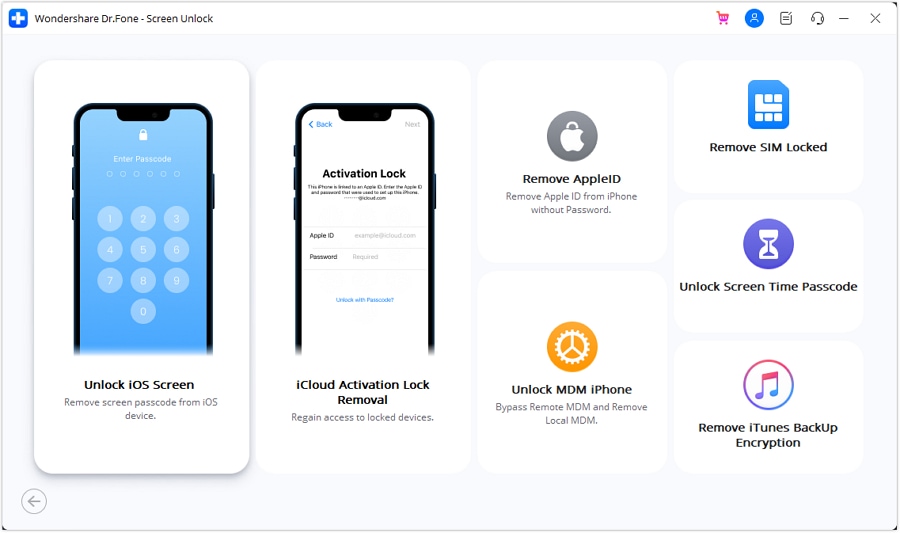
- Step 3: Following that, place your iDevice in Recovery Mode. Follow the on-screen instructions to set your iDevice into mode based on your phone model.
Note: If Recovery Mode does not work, try hitting the Try DFU Mode button at the bottom to access the instructions for putting the iDevice in DFU mode.

- Step 4: After successfully entering your device into Recovery Mode, the platform automatically recognizes the Device Model and shows it in the appropriate section. Modify the model and select the System Version to meet your needs if necessary. After that, select Start to begin unlocking your device’s screen.

- Step 5: The next screen shows the progress of your iOS firmware download. If at any point you decide you’d rather call it quits, hit the Stop button. If the iOS firmware takes a long time to download on your platform, you can copy the download link by clicking the Copy option.
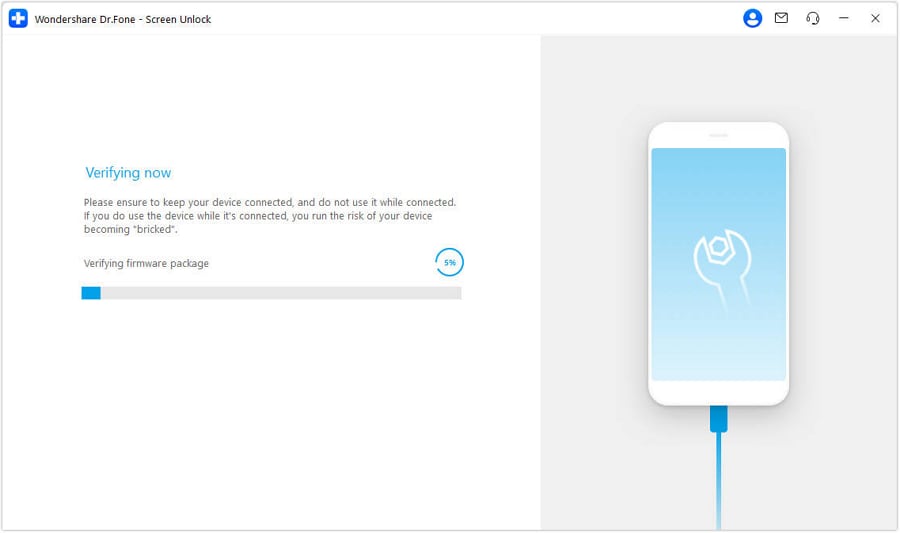
- Step 6: After a successful download, the iOS firmware is checked and shown on the next screen. Select the Unlock Now option again to proceed with the unlocking procedure. A confirmation popup displays, requesting you to confirm the action. Enter the unlock code and press the Unlock button to continue.
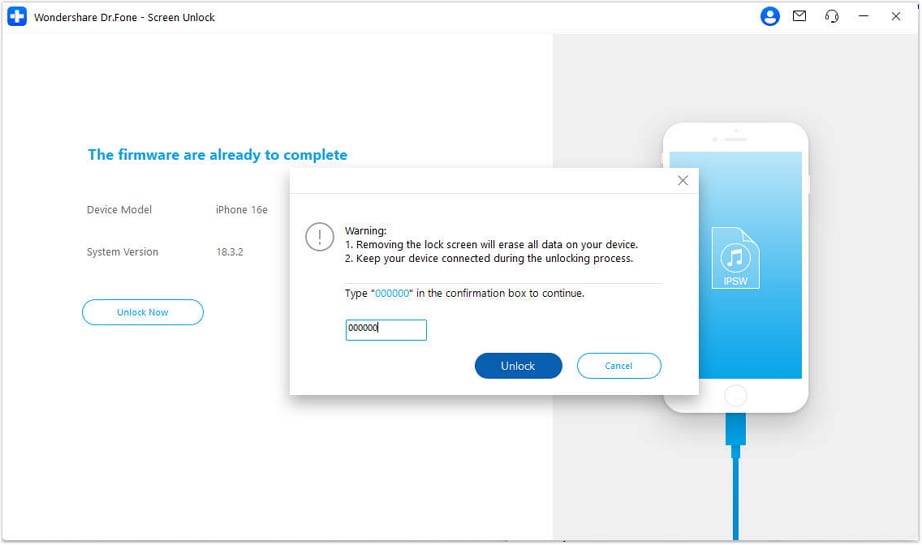
- Step 7: You’ll see the unlocking status of your iOS device on the following screen. Don’t forget that keeping the gadget plugged in is necessary to avoid bricking it.
- Step 8: Click the Done button once the iDevice has been unlocked. If you’re still stuck with a locked iPhone, iPad, or iPod, select Try Again to retry the process.
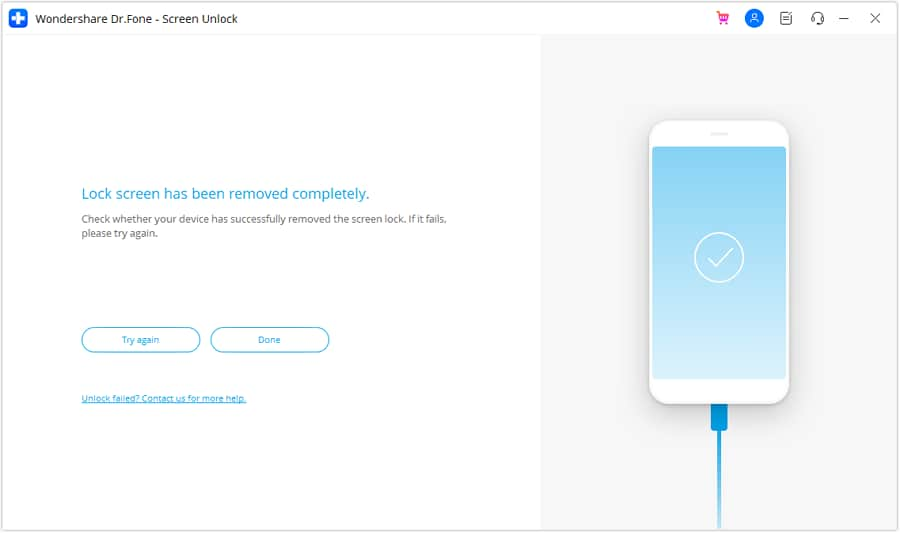
By using Dr.Fone - Screen Unlock (iOS), you can regain access to your iOS device and continue with the process of changing your Apple ID email address hassle-free. It’s a reliable and user-friendly solution that ensures you can enjoy the benefits of the new email address without losing any of your precious data.
You May Also Like:
How to Show Email Password on iPhone and Find It Back
A Detailed Guide to Fix All iPad Email Problems [2023]
How to Fix Email Disappeared from iPhone?
Conclusion
This guide easily explored the process of changing your Apple ID email address. It started by understanding why this change might be necessary and provided straightforward methods for Mac, mobile, and browser users to accomplish it seamlessly.
But what if you’re locked out of your iOS device? Don’t fret; Dr.Fone - Screen Unlock (iOS) is a user-friendly tool that can help you regain access to your device. It ensures a smooth transition to your new email. Unlock new possibilities with Dr.Fone, a reliable companion in managing your iOS device. Explore its features and simplify your Apple journey today!
Also read:
- [New] From Filming to Fame Discovering the Top 10 Ladies on YouTube
- [Updated] In 2024, Crossing Into a Shared TikTok Space Easy Ways
- 5 Ways to Reset ZTE Nubia Z60 Ultra Without Volume Buttons | Dr.fone
- How Lava Yuva 2 Pro Mirror Screen to PC? | Dr.fone
- How to Overcome the Tricky Windows 11 Update Issue - Error Code 0X802 Groggy
- In 2024, How to Fix Apple iPhone 15 Pro Passcode not Working? | Dr.fone
- In 2024, How to Turn Off Find My iPhone 15 Pro Max when Phone is Broken? | Dr.fone
- In 2024, How to Unlock Apple iPhone 11 Passcode Screen? | Dr.fone
- In 2024, How to Unlock Apple iPhone 13 mini Passcode without Computer? | Dr.fone
- In 2024, How To Unlock iPhone SE Without Passcode? 4 Easy Methods | Dr.fone
- In 2024, Top 6 YouTube Outro Makers-Lots of FREE Options
- Top 10 Swift Solutions: Get Your iPhone & iPad Widgets Running Smoothly
- Top-Rated AirTag Gadgets of 2024: Comprehensive Reviews by Tech Experts | ZDNet
- Trouble with Apple iPhone 11 Pro Swipe-Up? Try These 11 Solutions | Dr.fone
- Trouble with iPhone 12 Pro Max Swipe-Up? Try These 11 Solutions | Dr.fone
- Ultimate Handbook for MorphVOX Transformers
- Title: 7 Ways to Lock Apps on Apple iPhone 14 and iPad Securely | Dr.fone
- Author: Amelia
- Created at : 2024-11-06 03:51:16
- Updated at : 2024-11-07 03:09:17
- Link: https://iphone-unlock.techidaily.com/7-ways-to-lock-apps-on-apple-iphone-14-and-ipad-securely-drfone-by-drfone-ios/
- License: This work is licensed under CC BY-NC-SA 4.0.
